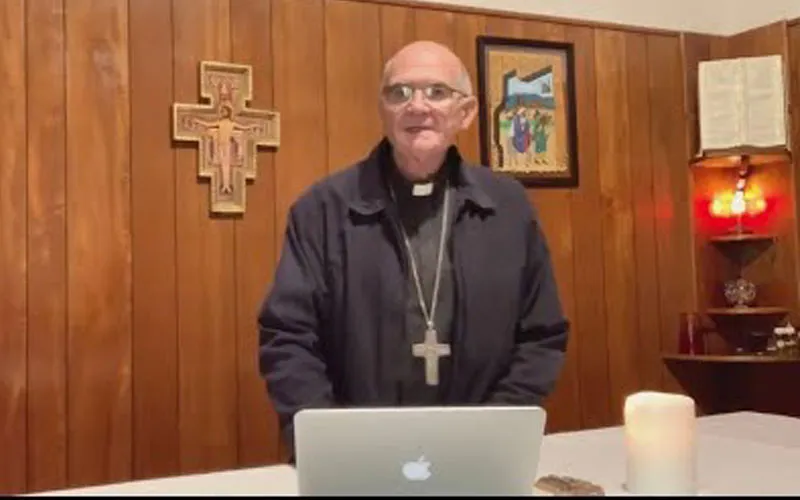Cape Town, 27 January, 2021 / 6:03 pm (ACI Africa).
A South African Archbishop has described physical distancing amid the second strain of COVID-19 as “one of the most painful aspects of the pandemic.”
In his Wednesday, January 27 reflection, Archbishop Stephen Brislin says the restrictions seem to go “against human nature” that seeks to be physically close to those who are sick.
“One of the most painful aspects of the pandemic, and one which rebels against human nature, is that we have not been able to visit loved ones in hospital even if they are on their death-bed,” Archbishop Brislin says in a video reflection obtained by ACI Africa.
The Archbishop of South Africa’s Cape Town Archdiocese adds, “It is important to us to be with those we love when they are suffering, even if we cannot relieve their suffering and even when we cannot find the words to comfort them. Simply being present, holding a hand, wiping the brow, are important to us and of great solace and comfort to the one who is ill.”
While the pandemic is forcing people to rely on technology through virtual interaction, a phenomenon that seems “convenient, cheap and efficient,” Archbishop Brislin says such virtual contact “is not the same as being with people at a physical meeting.”








